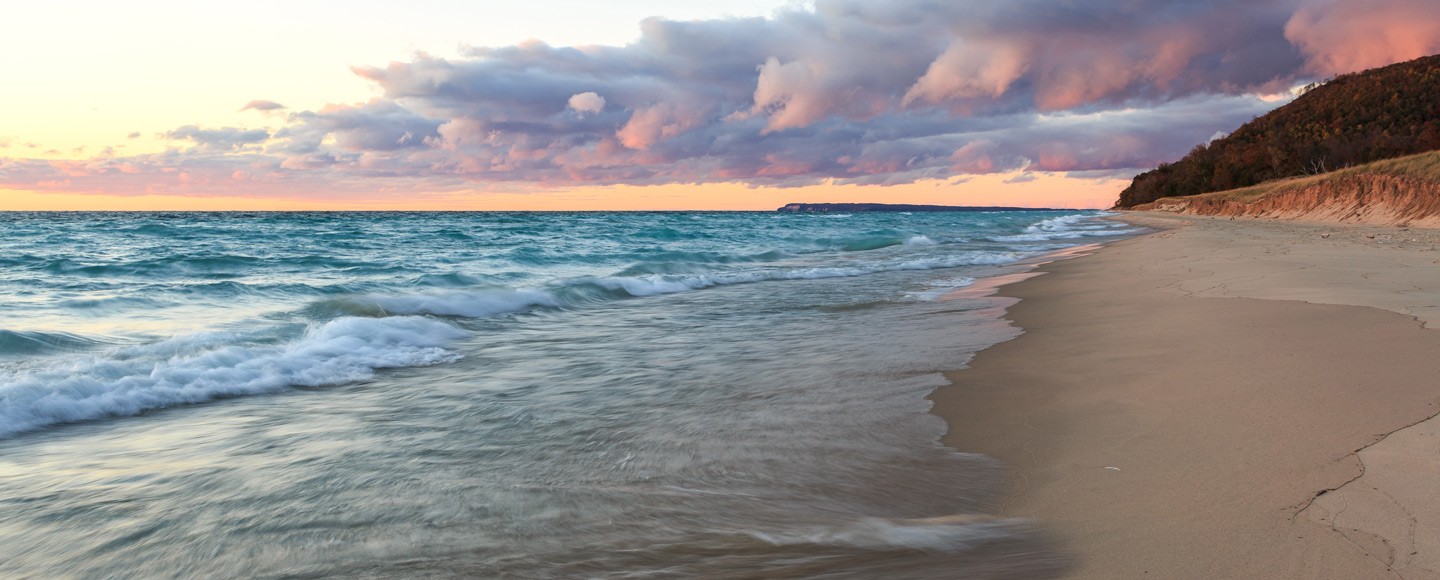
01.19.18
Surfrider Argues to the Michigan Supreme Court to Protect Public Lakeshore Access
By Staley PromToday, the Surfrider Foundation on behalf of its Lake Michigan Chapter filed an amicus curiae (“friend of the court”) brief with the Michigan Supreme Court in favor of public beach access along Michigan’s lakeshores.
Represented by the Great Lakes Environmental Law Center, Surfrider filed the brief in the appeal of a Michigan Court of Appeals case, Otto v. Inn at Watervale, Inc., which held that playing on the beach is not an activity that comes within Michigan’s Recreational Land Use Act’s (RLUA) protective scope. The RLUA generally protects landowners from being liable if non-paying persons are injured while recreating on their property, unless caused by gross negligence or willful and wanton misconduct. As such, the RLUA provides an incentive for landowners to open up their lands for public recreation, including along the shores of Lake Michigan.
The brief focuses on two primary points – one, that the legislature plainly intended the statute to apply to all outdoor recreational activities within the state, and two, that if the Court of Appeals’ decision is upheld, foreseeably more private landowners will offer less access to their lands, negatively impacting public lakeshore recreation opportunities and the state’s associated recreation and tourist economy.
Regarding Surfrider’s legislative history argument, for background purposes, the RLUA in relevant part provides:
“Except as otherwise provided in this section, a cause of action shall not arise for injuries to a person who is on the land of another without paying to the owner, tenant, or lessee of the land a valuable consideration for the purpose of fishing, hunting, trapping, camping, hiking, sightseeing, motorcycling, snowmobiling, or any other outdoor recreational use or trail use, with or without permission, against the owner, tenant, or lessee of the land, unless the injuries were caused by the gross negligence or willful and wanton misconduct of the owner, tenant, or lessee.” (emphasis added). (Michigan Compiled Laws § 324.73301)
Since its passage, the legislature has only ever expanded the RLUA’s scope, by increasing the number of explicit activities, and by making the inclusive catchall phrase at the end far more inclusive. Approximately a decade after RLUA was first adopted, the legislature added “or other similar outdoor recreational use” in addition to three enumerated outdoor recreation activities. A decade later, this was further expanded by dropping the word “similar” and, thus, including other recreational activities on the land within RLUA’s purview. Finally, in 1993, the legislature expanded the statute’s application again, to broadly include “any other outdoor recreational use or trail use.” (emphasis added). This broad statute plainly includes outdoor coastal lakeshore recreation, like walking along or playing at Michigan’s lake beaches.
With respect to the coastal recreational opportunities that would suffer if the Court of Appeals’ opinion stands, the brief details how important coastal recreation is to Michigan’s residents and visitors. For example, a 2016 survey of visitors revealed that beach and waterfront activities and swimming were in the top five categories of visitor activities. It further illustrates how coastal recreation and tourism are important to Michigan’s economy. Further, given that a majority of Michigan’s beaches are privately owned, a finding by the Michigan Supreme Court that private landowners are not protected by the RLUA could cause a significant decline in public access to the Great Lakes, and a corresponding hit to Michigan’s economy.
Surfrider Foundation anticipates the Court will issue its decision later this spring or summer, and is hopeful that it will rule in favor of a broad RLUA and greater coastal access protection.
Surfrider Foundation has been generously represented pro bono in this matter by Oday Salim at the Great Lakes Environmental Law Center, along with support from attorneys Noah Hall and Nick Schroeck, and students from the Wayne Law Transnational Environmental Law Clinic. Surfrider Foundation legal intern Amy Foo also assisted with this effort.